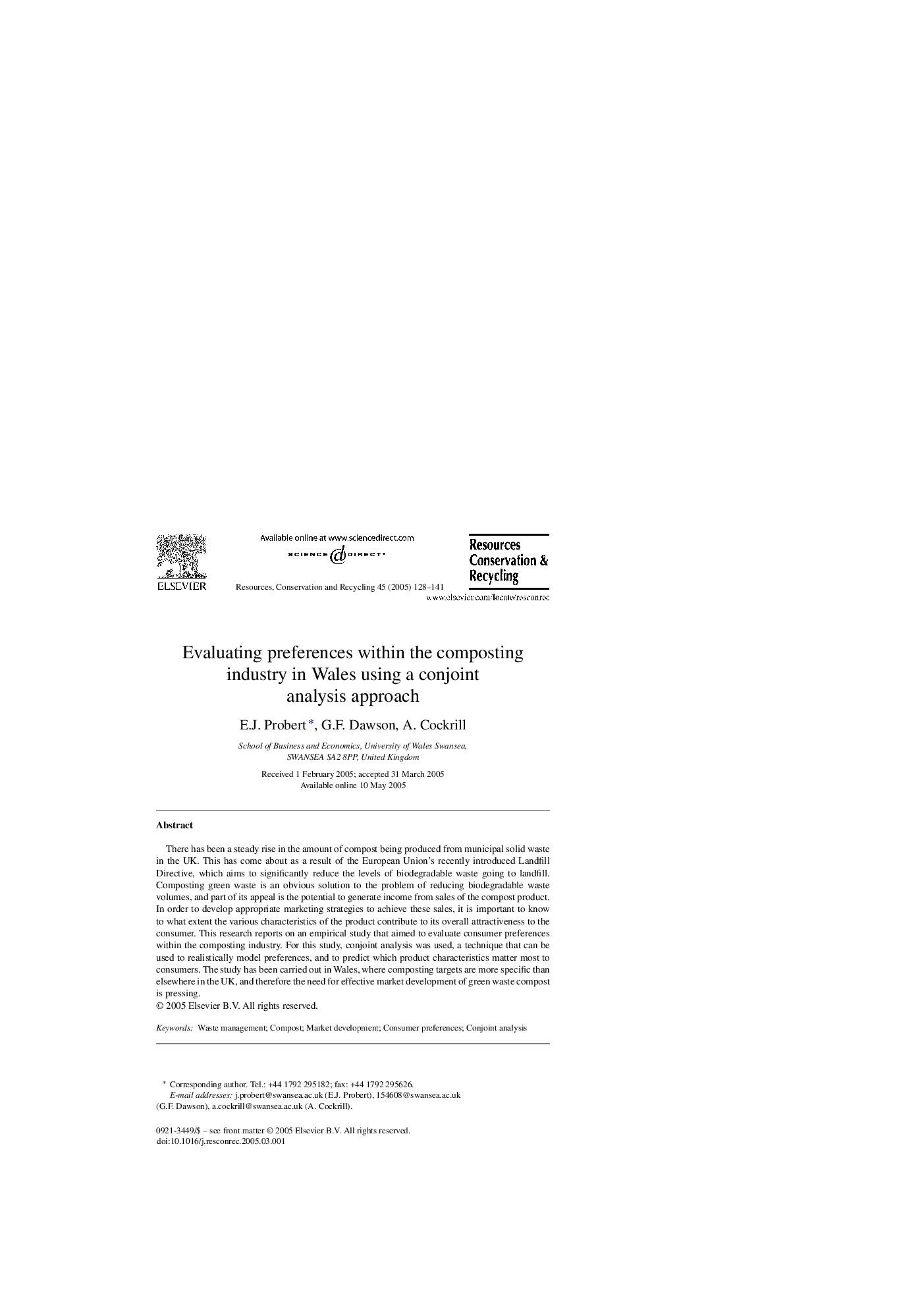| Article ID | Journal | Published Year | Pages | File Type |
|---|---|---|---|---|
| 10508090 | Resources, Conservation and Recycling | 2005 | 14 Pages |
Abstract
There has been a steady rise in the amount of compost being produced from municipal solid waste in the UK. This has come about as a result of the European Union's recently introduced Landfill Directive, which aims to significantly reduce the levels of biodegradable waste going to landfill. Composting green waste is an obvious solution to the problem of reducing biodegradable waste volumes, and part of its appeal is the potential to generate income from sales of the compost product. In order to develop appropriate marketing strategies to achieve these sales, it is important to know to what extent the various characteristics of the product contribute to its overall attractiveness to the consumer. This research reports on an empirical study that aimed to evaluate consumer preferences within the composting industry. For this study, conjoint analysis was used, a technique that can be used to realistically model preferences, and to predict which product characteristics matter most to consumers. The study has been carried out in Wales, where composting targets are more specific than elsewhere in the UK, and therefore the need for effective market development of green waste compost is pressing.
Related Topics
Physical Sciences and Engineering
Energy
Renewable Energy, Sustainability and the Environment
Authors
E.J. Probert, G.F. Dawson, A. Cockrill,
